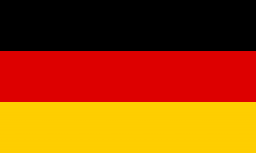Main Container Ports in Germany
LEARN HUB

Main Container Ports in Germany

Mannheim Port
UN/LOCODE: DEMHG
Terminal: Yes
Mannheim Port, situated in Mannheim, Germany, is a vital inland port serving as a key transportation hub along the Rhine River. As one of Europe’s largest inland ports, it facilitates the movement of goods through its extensive network of waterways, railways, and roads. Mannheim Port offers modern facilities for cargo handling, including terminals for containers, bulk goods, and liquid cargo.
Its strategic location in the heart of Europe enhances connectivity to major markets, making it a preferred choice for international trade and logistics operations.

Frankfurt Port
UN/LOCODE: DEFRA
Terminal: Yes
Frankfurt Port, located in Frankfurt, Germany, is a major inland port serving as a crucial hub for international trade and transportation along the Main River. As a multimodal transport center, it facilitates efficient movement of goods via river, rail, and road connections to Europe and beyond.
The port offers extensive facilities including container terminals, warehouses, and specialized handling equipment, catering to diverse cargo needs. With its strategic location in the heart of Europe’s industrial region, Frankfurt Port plays a vital role in facilitating global supply chains and supporting economic growth in the region.

Duisburg Port
UN/LOCODE: DEDUI
Terminal: Yes
Duisburg Port, located in Duisburg, Germany, is one of the largest inland ports in the world and a key transportation hub in Europe. As a multimodal port, it connects river, rail, and road networks, facilitating efficient cargo transport. Situated along the Rhine River, it offers extensive facilities for handling various goods, including containers, bulk cargo, and industrial materials.
With its strategic location in the heart of Europe, Duisburg Port serves as a vital link for international trade, offering warehousing, logistics services, and access to major European markets.

Bremen Port
Address: Hansestadt Bremisches, Ueberseetor 2, Bremen, Germany
Port Authority: Bremen Port Authority
UN/LOCODE: DEBRE
Port Type: River Port
Port Size: Medium
Terminal: Yes
Bremen Port, located in Bremen, Germany, is a prominent seaport handling various types of cargo, including containers, bulk, and general cargo. Situated on the River Weser, it offers convenient access to the North Sea, facilitating international trade.
The port boasts modern facilities equipped to handle diverse freight requirements efficiently. With its strategic location, Bremen Port serves as a crucial hub for maritime transportation in Europe, contributing significantly to the region’s economic activity and global trade networks.

Wilhelmshaven Port
UN/LOCODE: DEWVN
Terminal: Yes
Wilhelmshaven Port, located in Germany, is a major deep-water port on the North Sea coast. As a key maritime hub, it serves as a crucial gateway for international trade, particularly for container shipping, bulk cargo, and petroleum products.
Offering extensive facilities, including modern terminals equipped for efficient handling of various cargo types, Wilhelmshaven Port boasts excellent connectivity to hinterland regions via road, rail, and inland waterways. Its strategic location, combined with advanced infrastructure and logistical capabilities, positions it as a vital node in global supply chains, facilitating seamless transportation and trade operations.

Bremerhaven Port
Address: Hansestadt Bremisches, Ueberseetor 2, Bremen, Germany
Port Authority: Bremen Port Authority
UN/LOCODE: DEBRV
Port Type: Seaport
Port Size: Large
Terminal: Yes
Bremerhaven Port, located in Bremerhaven, Germany, is a major maritime hub on the North Sea coast. As one of Europe’s busiest ports, it serves as a crucial gateway for international trade, particularly with its strong focus on container handling, automobile imports and exports, and general cargo.
Its strategic location offers convenient access to the North Sea and beyond, facilitating efficient transportation of goods. Equipped with state-of-the-art facilities, including modern terminals and extensive logistics services, Bremerhaven Port efficiently handles a diverse range of cargo, contributing significantly to Germany’s economy and global trade networks.

Hamburg Port
Address: Mattentwiete 2, Hamburg D – 20457, Germany
Port Authority: Port Authority of Hamburg
UN/LOCODE: DEHAM
Port Type: Seaport
Port Size: Very Large
Terminal: Yes
Hamburg Port, located in Germany, is one of Europe’s largest and busiest seaports, situated on the River Elbe. As a major hub for international trade, it facilitates the movement of goods across the globe.
Hamburg Port boasts state-of-the-art facilities for container handling, bulk cargo, and logistics services. Its strategic location provides easy access to the Baltic Sea and beyond, making it an essential gateway for imports and exports. With extensive infrastructure and efficient operations, Hamburg Port plays a crucial role in facilitating maritime commerce and contributing to the region’s economic vitality.

Lubeck Port
UN/LOCODE: DELBC
Terminal: Yes
Lubeck Port, situated in Lubeck, Germany, is a key maritime facility on the Baltic Sea. As a major seaport, it serves as a vital hub for both domestic and international trade, facilitating the movement of goods between Northern Europe and the rest of the world.
Lubeck Port boasts modern infrastructure and state-of-the-art facilities, including deep-water berths, extensive storage areas, efficient cargo handling equipment, and excellent connectivity to road and rail networks. Its strategic location and advanced capabilities make it an indispensable link in the global supply chain, supporting various industries and ensuring smooth cargo operations

Kiel Port
UN/LOCODE: DEKEL
Terminal: Yes
Kiel Port is a major maritime hub situated in Kiel, Germany. As a prominent seaport on the Baltic Sea, it serves as a vital gateway for both commercial and passenger traffic. The port boasts modern facilities capable of accommodating various vessel types, including cargo ships, ferries, and cruise liners.
Its strategic location facilitates efficient trade connections within Europe and beyond. Kiel Port’s extensive infrastructure supports diverse maritime activities, including cargo handling, passenger services, and ship repairs, making it a crucial economic asset for the region.
When it comes to importing Indonesian furniture, it’s crucial to understand the customs clearance process. This involves complying with regulations for importing wood furniture and working with a reputable customs broker for Indonesian imports. Navigating the import permit and tariffs set by Customs is essential for a smooth importing process.
Read our Guide to Importing from Indonesia for more info.
FURTHER READING
FURNITURE PAGES IN WEST EUROPE
YOUR SUPPLY PARTNER IN INDONESIA
Looking for new products for your store or next project?
With around 12,000 products register today to see our full range. We offer a broad range of indoor and outdoor furniture.
Useful link: Indonesian Ministry of Trade
